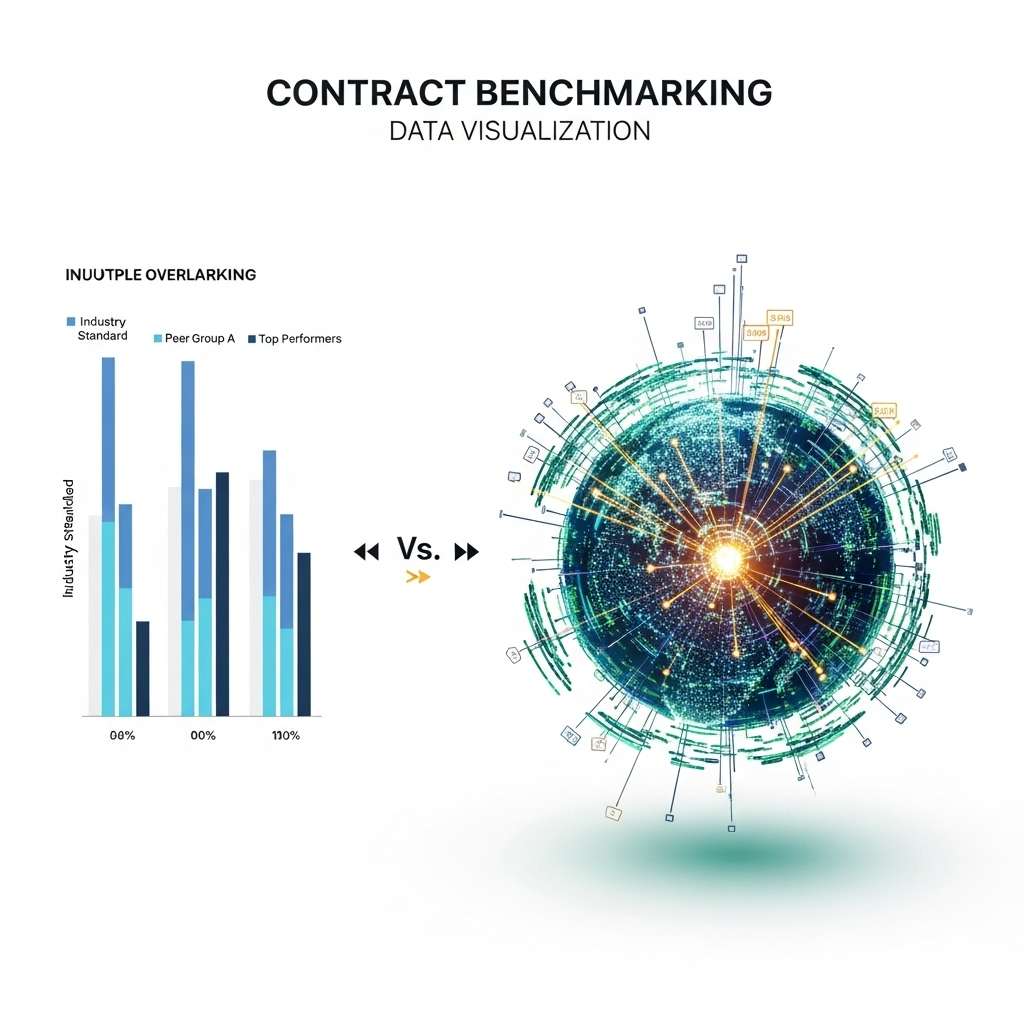
Market Standard Benchmarking
Negotiate with confidence using data-driven insights from millions of contracts. Know exactly what's standard, what's favorable, and what requires pushback to secure the best possible terms for your organization.
Data-Driven Negotiation Intelligence
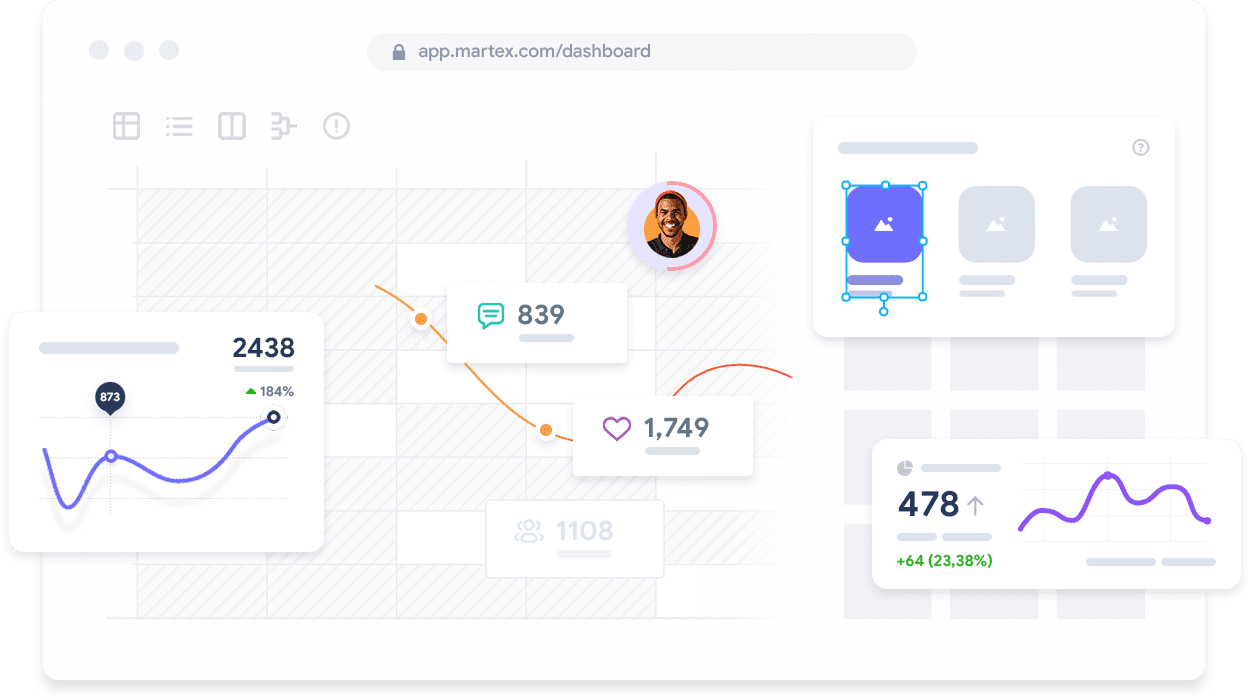
Contract negotiation has traditionally been as much art as science, with outcomes heavily dependent on the experience, intuition, and negotiating skills of individual professionals. While these human elements remain important, the modern business environment demands more objective, data-driven approaches to contract analysis and negotiation strategy. Market standard benchmarking transforms contract negotiation from a subjective process into a strategic advantage backed by comprehensive market intelligence.
The power of benchmarking lies in its ability to provide concrete, quantifiable evidence about what constitutes normal, favorable, or problematic contract terms across different industries, deal sizes, and counterparty types. Instead of relying on anecdotal experience or general impressions about market conditions, legal and business professionals can access precise data about how specific contract provisions compare to established market norms.
This transformation from intuition-based to data-driven negotiation strategy represents a fundamental shift in how organizations approach contract management. With access to benchmarking data derived from millions of anonymized agreements, negotiators can identify opportunities for improvement, justify their positions with objective evidence, and achieve more favorable outcomes while maintaining productive business relationships.
Massive Database Intelligence
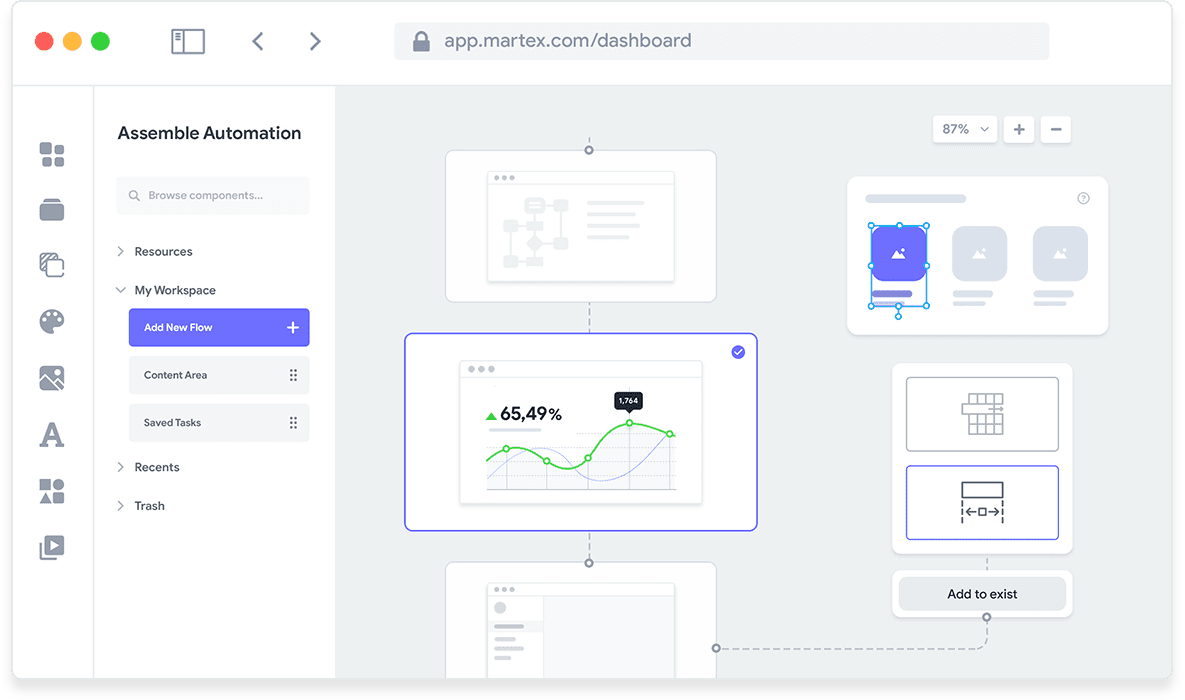
The foundation of effective market standard benchmarking rests on the breadth, depth, and quality of the underlying contract database. Modern AI-powered systems leverage vast repositories containing tens of millions of anonymized contracts spanning multiple industries, jurisdictions, and deal types. This massive scale ensures statistical significance and provides reliable insights across virtually any contract scenario or business context.
Industry-Specific Intelligence
Different industries have evolved distinct contracting practices that reflect their unique business models, risk profiles, and regulatory environments. Software licensing agreements follow different patterns than manufacturing supply contracts, while professional services agreements employ different risk allocation mechanisms than real estate transactions. Comprehensive benchmarking systems maintain industry-specific datasets that enable precise comparisons within relevant market segments.
This industry specificity ensures that benchmarking insights are not just statistically valid but practically relevant. A technology startup comparing its SaaS subscription terms against manufacturing contracts would receive misleading guidance, but comparison against similar technology companies provides actionable intelligence for negotiation strategy and risk assessment.
Geographic and Regulatory Context
Contract standards vary significantly across different jurisdictions due to variations in legal systems, business cultures, and regulatory requirements. What constitutes a standard limitation of liability clause in New York might be unusual in London, while data processing terms that are routine in California might be inadequate under European GDPR requirements.
Advanced benchmarking systems account for these geographic and regulatory variations by maintaining jurisdiction-specific datasets and analysis capabilities. Users can compare their contracts against global standards, regional norms, or specific jurisdictional practices, depending on the relevance to their particular business context and legal requirements.
Dynamic Market Intelligence
Contract markets are not static; they evolve continuously in response to changing business conditions, regulatory developments, economic cycles, and emerging technologies. The most sophisticated benchmarking systems incorporate this temporal dimension by tracking how contract standards change over time and adjusting their analysis to reflect current market conditions rather than historical averages that may no longer be relevant.
Advanced Comparative Analysis
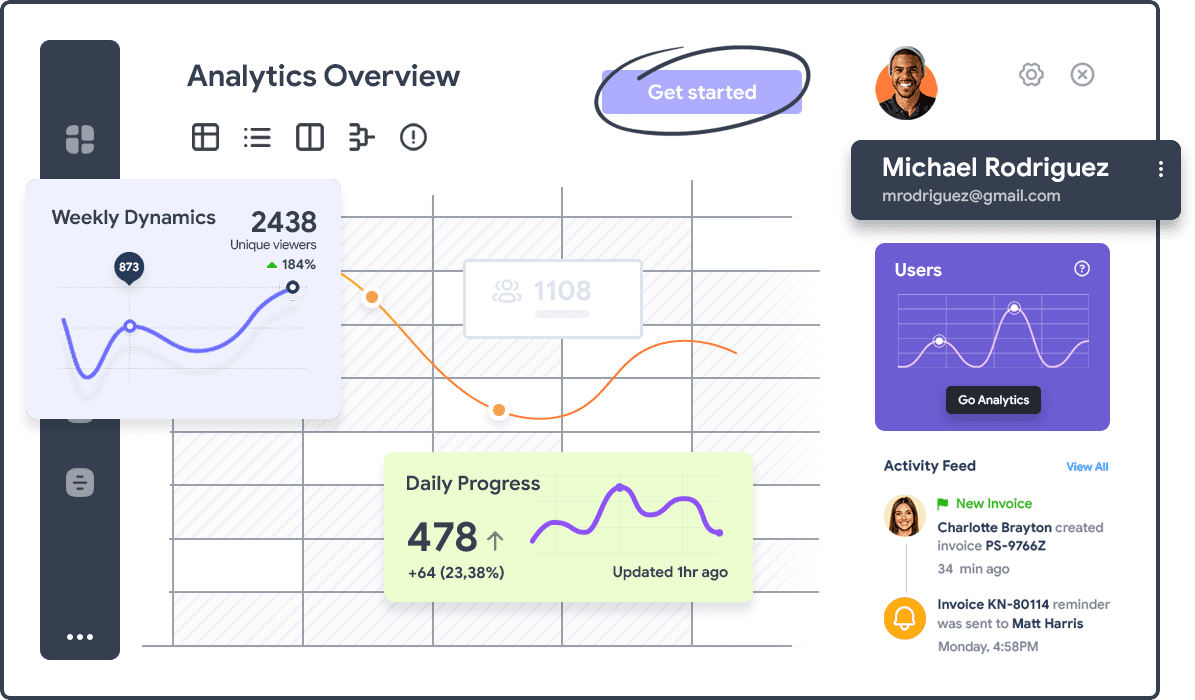
The true value of market standard benchmarking emerges through sophisticated comparative analysis that goes beyond simple statistical averages to provide nuanced, contextual insights about contract performance and optimization opportunities. Modern systems employ advanced analytics to identify patterns, correlations, and outliers that human reviewers might miss.
Multi-Dimensional Benchmarking
Effective benchmarking considers multiple dimensions simultaneously to provide comprehensive comparative intelligence. A single contract provision might be analyzed against industry standards, company size cohorts, geographic norms, deal value ranges, and counterparty characteristics to generate a complete picture of how the term compares across relevant market segments.
This multi-dimensional approach reveals subtle variations in market practices that might be invisible when analyzing single variables in isolation. For example, payment terms that are standard for large enterprise deals might be unusually favorable for smaller transactions, or liability caps that are typical in one industry might be restrictive in another sector.
Percentile Rankings and Distribution Analysis
Rather than simply indicating whether a term is "above" or "below" average, sophisticated benchmarking systems provide percentile rankings that show exactly where a provision falls within the distribution of market practices. This granular perspective enables precise understanding of how aggressive, conservative, or mainstream a particular negotiating position might be.
Understanding distribution patterns also reveals opportunities for strategic positioning. A term that falls in the 75th percentile might represent an opportunity for improvement, while provisions in the 25th percentile might indicate areas where concessions could be made in exchange for gains in other areas of the contract.
Correlation Analysis and Pattern Recognition
Advanced analytical systems identify correlations between different contract provisions and overall agreement outcomes. These insights reveal how changes in one area of a contract might affect other terms, enabling more sophisticated negotiation strategies that consider the interdependencies between different contractual elements. Understanding these patterns helps negotiators make strategic trade-offs that optimize overall contract value rather than focusing on individual provisions in isolation.
Strategic Negotiation Enhancement
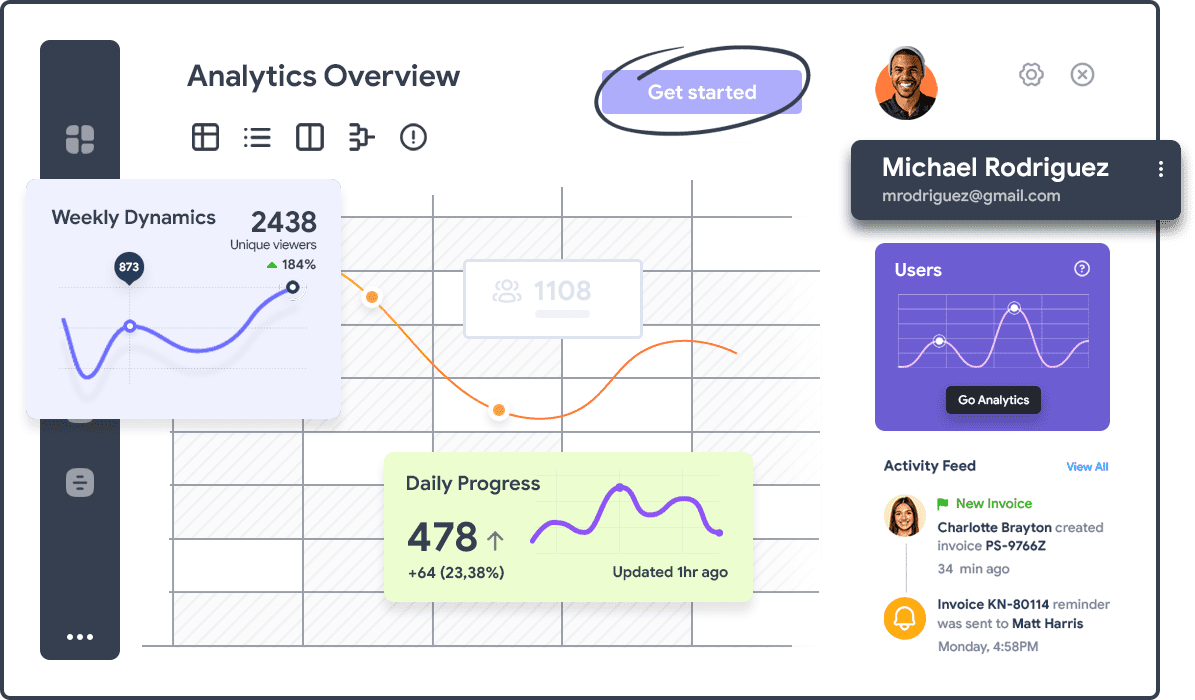
Market standard benchmarking transforms negotiation from a reactive process of responding to counterparty proposals into a proactive strategy of pursuing optimal outcomes based on empirical market intelligence. This shift enables more confident, effective negotiations that achieve better results while maintaining positive business relationships.
Evidence-Based Position Development
Traditional contract negotiations often devolve into subjective arguments about what is "reasonable" or "standard," with each party asserting their position based on limited experience or anecdotal evidence. Benchmarking data eliminates this subjectivity by providing objective, verifiable evidence about market practices that both parties can understand and accept.
When a negotiator can demonstrate that their proposed liability cap represents the 60th percentile of market practice for similar transactions, the discussion shifts from subjective preference to objective market positioning. This evidence-based approach tends to produce more rational, efficient negotiations that focus on legitimate business interests rather than negotiating tactics or positional bargaining.
Opportunity Identification and Prioritization
Comprehensive benchmarking analysis reveals specific opportunities for contract improvement by highlighting provisions that deviate significantly from favorable market practices. Rather than attempting to negotiate every possible point, legal professionals can focus their efforts on areas where data indicates the greatest potential for meaningful improvement.
This strategic focus is particularly valuable in complex negotiations where time and negotiating capital are limited resources. By prioritizing improvements that are both achievable and valuable based on market intelligence, negotiators can achieve better overall outcomes without exhausting goodwill on marginal issues.
Risk Assessment and Trade-off Analysis
Benchmarking data enables sophisticated analysis of risk-reward trade-offs by showing how different contractual approaches affect overall agreement balance and market positioning. Understanding how concessions in one area typically correlate with gains in other areas helps negotiators structure proposals that are both favorable and realistic based on actual market practices rather than theoretical ideals.
Real-World Applications and Use Cases
Vendor Contract Optimization
Procurement organizations use benchmarking intelligence to evaluate vendor proposals and identify opportunities for improvement before entering negotiations. By understanding market standards for service level agreements, penalty clauses, termination rights, and pricing structures, procurement teams can develop negotiation strategies that achieve better value while maintaining vendor relationships.
This application is particularly powerful in competitive bidding situations where multiple vendors are proposing different contractual approaches. Benchmarking data helps procurement teams objectively evaluate proposals and negotiate standardized terms that reflect best practices rather than accepting whatever terms vendors initially propose.
Sales Contract Enhancement
Sales organizations leverage benchmarking intelligence to develop stronger template agreements and respond more effectively to customer redlines and negotiation requests. By understanding which customer requests represent reasonable market accommodations versus unusual demands, sales teams can make informed decisions about which concessions to accept and which positions to defend.
This intelligence also enables sales teams to justify their standard terms and conditions by demonstrating alignment with market practices, which can reduce customer resistance and accelerate deal closure. When customers understand that proposed terms reflect established market standards rather than arbitrary company preferences, negotiations tend to proceed more smoothly.
Template Development and Standardization
Legal departments use benchmarking data to develop and refine contract templates that balance favorable terms with market acceptability. Rather than creating templates based purely on legal preferences or theoretical risk minimization, teams can design agreements that achieve business objectives while remaining negotiable in actual market conditions.
This balance between protection and practicality is crucial for template effectiveness. Templates that are too aggressive may trigger extensive negotiations on every deal, while overly conservative approaches may leave value on the table. Benchmarking data helps identify the optimal balance point that maximizes value while minimizing negotiation friction.
Merger and Acquisition Due Diligence
In M&A transactions, benchmarking analysis helps evaluate target companies' contract portfolios by identifying agreements that deviate significantly from market standards and may require attention during integration planning. This analysis can reveal hidden risks, integration challenges, or opportunities for contract optimization that affect transaction valuation and post-closing planning.
Technology Evolution and Future Trends
Machine Learning Enhancement
The accuracy and sophistication of benchmarking analysis continues to improve through advanced machine learning techniques that identify subtle patterns and relationships in contract data. These systems become more intelligent over time, learning from user feedback and market developments to provide increasingly precise and valuable insights.
Future developments promise even more sophisticated analysis capabilities, including predictive modeling that anticipates how market standards might evolve in response to regulatory changes, economic conditions, or industry developments. This forward-looking intelligence will enable proactive contract strategy development rather than purely reactive market analysis.
Real-Time Market Intelligence
Emerging systems provide real-time updates to benchmarking intelligence as new contracts are added to databases and market conditions evolve. This dynamic capability ensures that negotiation strategies remain current and relevant even in rapidly changing business environments.
The integration of benchmarking intelligence with broader contract lifecycle management systems promises to create comprehensive platforms that support every stage of contract development, negotiation, execution, and performance monitoring. These integrated approaches will enable organizations to optimize their entire contracting process based on empirical market intelligence rather than traditional intuition-based methods.
